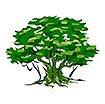Religious Education (RE)
Religion and Worldviews Curriculum Intent
Religious Education has a significant role in the development of pupils’ spiritual, moral, social and cultural development. It promotes respect and open-mindedness towards others and encourages pupils to develop their own sense of identity and belonging through self-awareness and reflection. At Reydon Primary School, the intent of our Religion and Worldviews curriculum is to develop an understanding and appreciation in our pupils for the expression of beliefs, cultural practices and influence of religious and non-religious worldviews in the local, national and wider global community. In following The Emmanuel Project, it is our intent that pupils develop ways of knowing about religion and engage in a cycle of enquiry and exploration into religious and non-religious worldviews, values and practices. As they move through the curricumlum, pupils will revisit key concepts through a study of: Christianty, Judaism, Hinduism, Islam, Sikhism and encounter Buddhism and Humanism. It is our intent that pupils will build upon their knowledge and understanding, make links within and between worldviews, become confident in their use of religious vocabulary and ultimately develop and make sense of the world in which they live.
Curriculum Implementation
Religious Education is a unique subject and forms part of the broad and balanced curriculum we offer at Reydon Primary School. It is our intent to promote an enquiry-based approach through the implementation of The updated Emmanuel Project, in line with the Suffolk Agreed Syllabus (2012) for our Key Stage One and Key Stage Two pupils. For those in EYFS, the implementation of these resources contributes to their learning experiences within the early learning goals for the foundation stage. In following the Suffolk Agreed Syllabus, every half term, our pupils are introduced to a core question and through each unit of study, they move through a cycle of: engage, enquire, explore, evaluate and express. To develop childrens’ understanding of religious thinking, pupils study key concepts and worldviews through the disciplinary lenses of: Theology, Human and Social Sciences and Philosophy. In exploring ways of believing, living and thinking through these disciplines, our pupils develop religious literacy and skills in ways of knowing about religious and non-religious worldviews. The lesson content is developed by teachers and written outcomes are recorded in pupils' individual books and class books may also be used to capture drama and comments offered in class discussion. Opportunities for pupils to engage in the core question of each unit is established early on in the lesson sequence. Quick quizzes, the use of knowledge organisers and activities designed to expose religious literacy are implemented throughout the course of study. Our Religion and Worldviews exercise books follow the children up through the school, allowing them to reflect back on their prior learning, supporting them to make links. Where appropriate, lessons may be blocked and pupils may take part in the engage element of the cycle prior to a dedicated day of a carousel of activities. Time is then spent on expressing learning the following day.
Early Years Foundation Stage Pupils are introduced to Christianity as the ‘heritage religion’ and the one that most influences school and community life at Reydon. Units within The Emmanuel Project are based on three key questions and center on core Christian beliefs: Creation, Incarnation and Salvation. Pupils are taught about traditions, beliefs and worldviews outside of their own experiences through encounters with other religions and faiths.
Experiences and enrichment opportunities at Reydon Primary
● exploring scared texts
● handling artefacts using imaginative play or drama to express feelings and ideas
● responding to images, games, stories, art, music and dance
● meeting visitors from local religious communities
● making visits to religious places of worship where possible, and where not, making use of videos and the internet
● taking part in whole school events- (multi-faith days, Harvest Festival, school performances)
● participating in moments of quiet reflection
● participating in Open the Book assemblies
● using ICT to further explore religion and belief globally
● comparing religions and worldviews through discussion
● debating and communicating religious belief, worldviews and philosophical ideas and answering and asking ultimate questions posed by these.
Our RE Learning Journey
religion and worldviews learning journey 2022 2023.pdf
Impact
At Reydon Primary, we envision the Religion and Worldviews curriculum as impacting the pupils in the following ways:
● extend their knowledge and understanding of religions and beliefs
● develop a religious vocabulary and interpret religious symbolism in a variety of forms
● reflect on questions of meaning, offering their own thoughtful and informed insights into religious and secular world-views
● explore ultimate questions of beliefs and values in relation to a range of contemporary issues in an ever-changing society
By the end of each key stage, pupils are expected to know, understand and apply skills related to the two attainment targets and learning themes embedded with the Emmanuel Project. Assessment criteria has been developed in line with the expectations laid out in the Agreed Suffolk Syllabus, to enable teachers to assess the progress of the children as they move through the key stages.
Half-termly summative tasks based on Bloom’s Taxonomy are used to determine a pupil’s understanding of a given topic and are used to inform the teacher's planning and further assessment opportunities. Solo taxonomy tasks are reviewed by the class teacher to determine how far a pupil can answer the core concept question and feeds into their summative assessment against the end of year outcomes. The subject leader also reviews the assessment opportunities employed within the curriculum, conducts book looks and carries out lesson observations.
The impact of our Religion and Worldviews curriculum is also sought directly from the pupils as surveys and questionnaires are used to gather pupils’ voice on this subject and together with summative assessment, action can be taken to further develop the curriculum by the subject leader.

